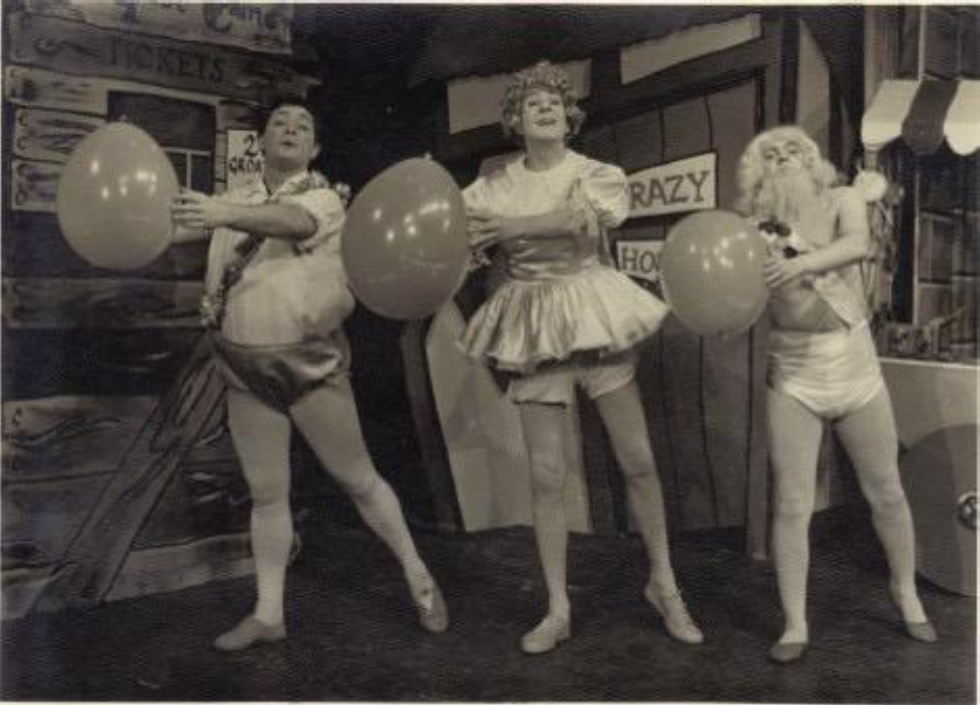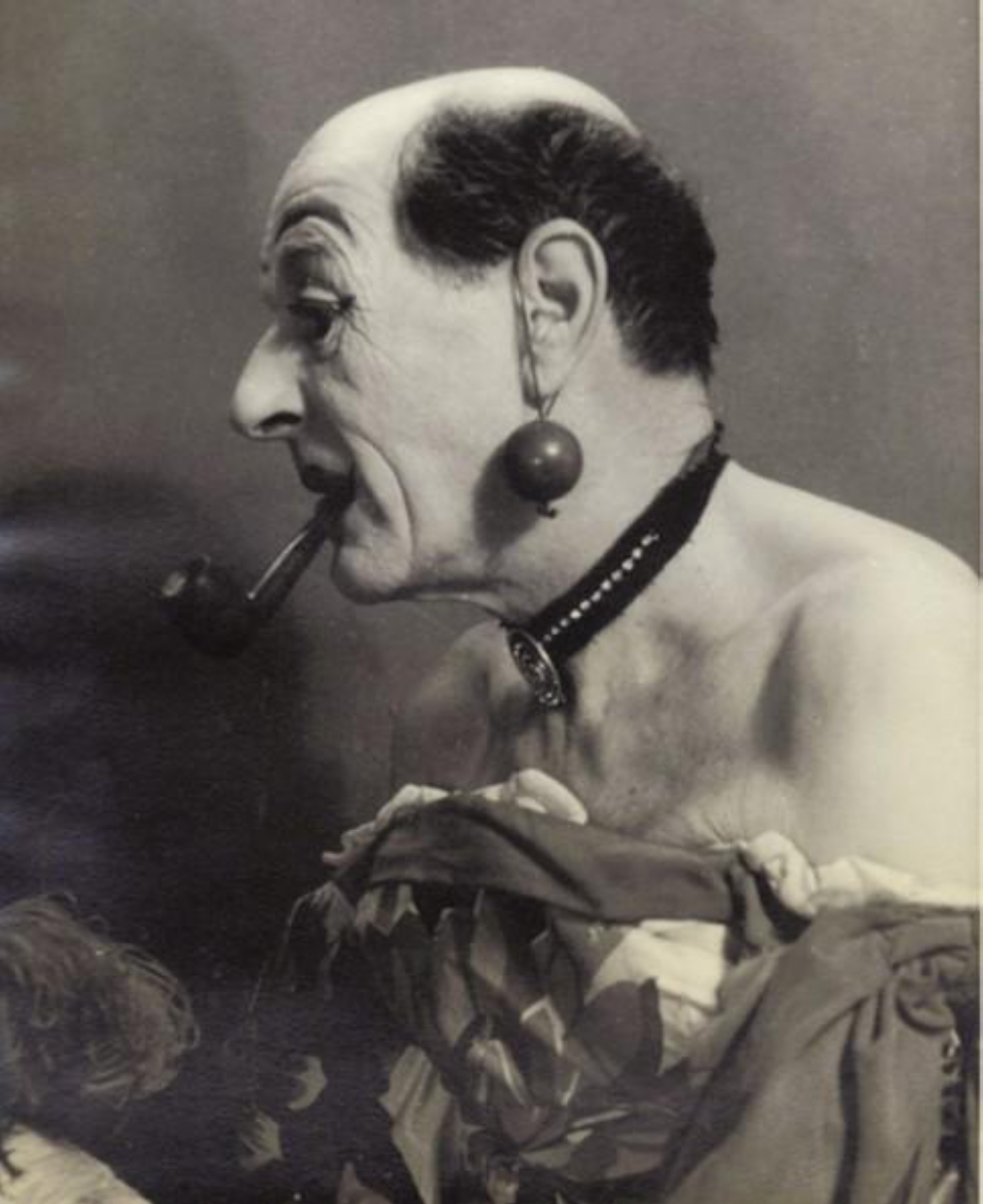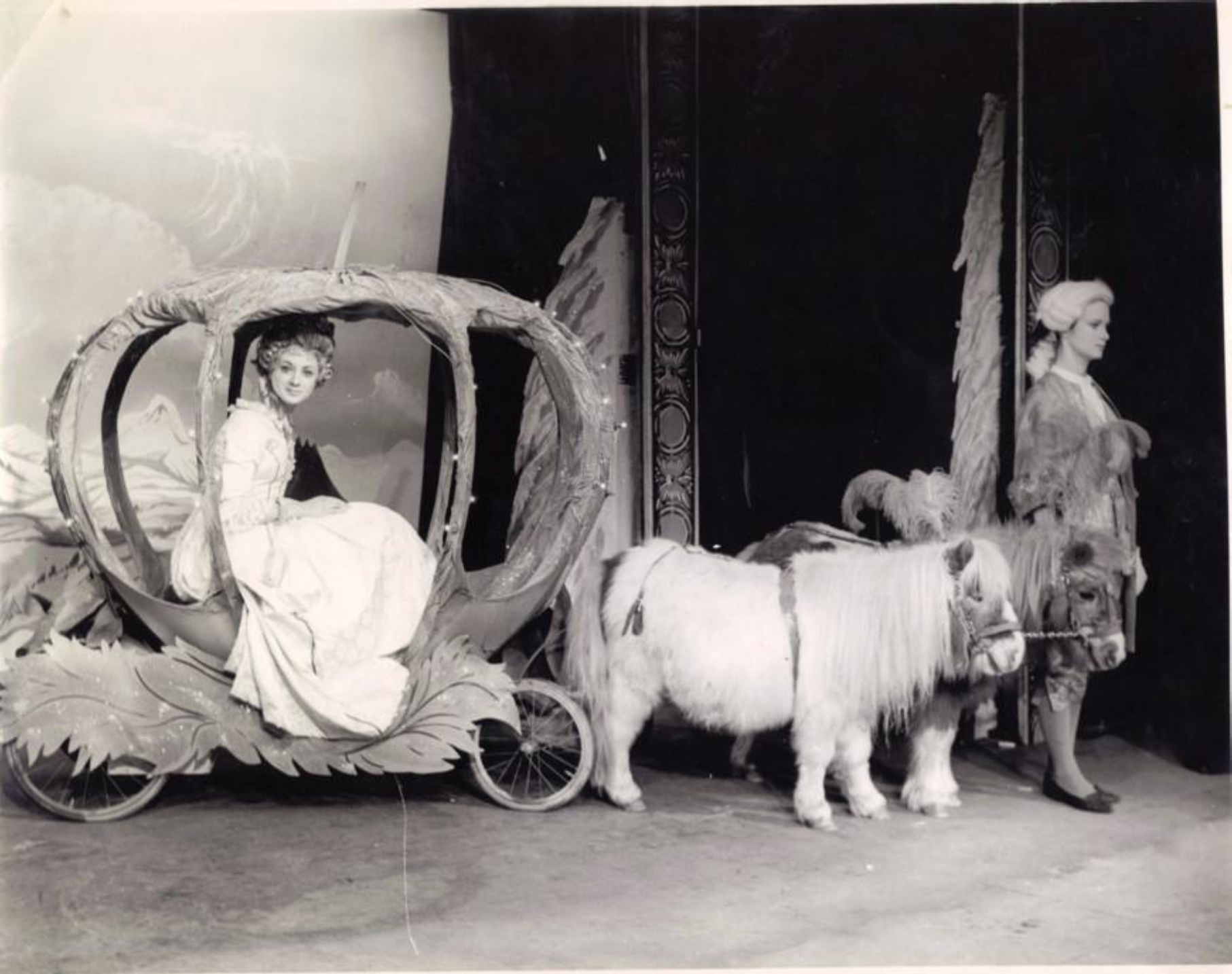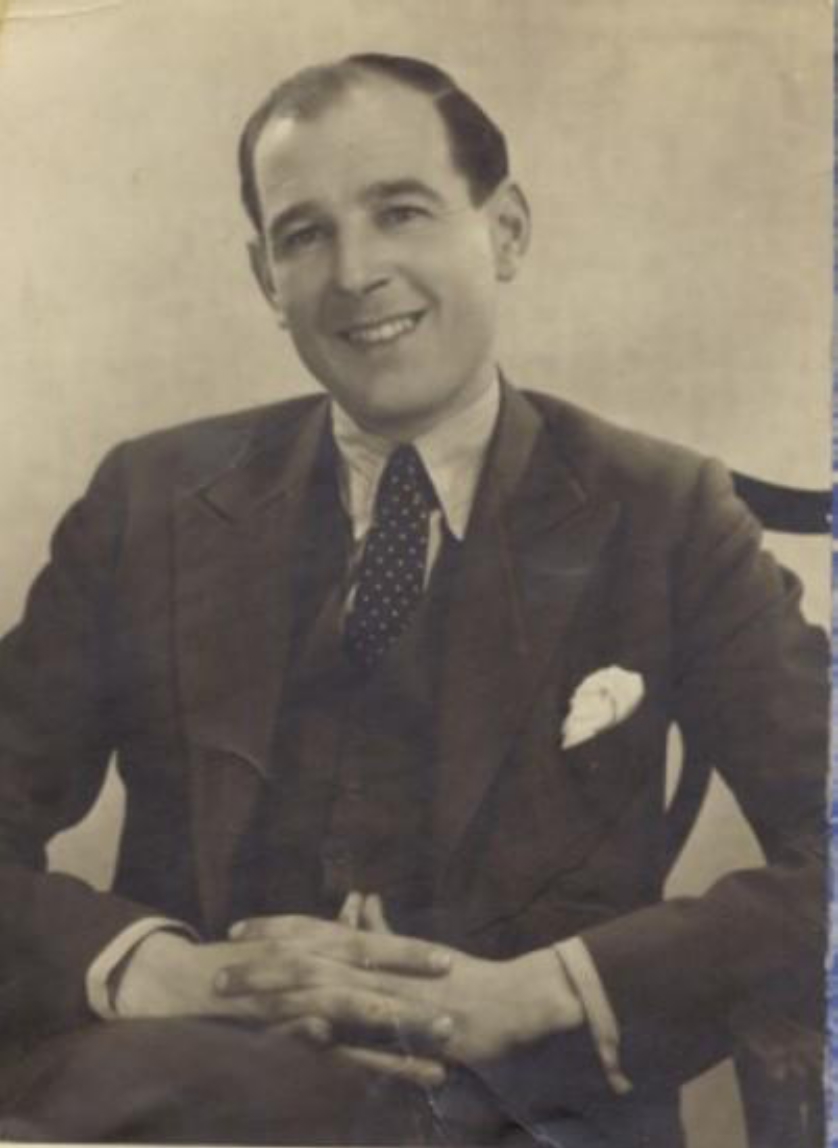Curtain Call Memories Part 3: Long Ago Days With Pantomime

The repertory theatre my dad ran when I was a child in the 50s and 60s relied on the pantomime season to raise money to be able to do other work during the rest of the season.
Pantomime has its roots in medieval theatre
“The Fairy has never lost her connection with the doctrine of Good and Evil”.
She should enter from the right, or good, side of the stage, transfer her wand from right to left hand to protect her heart. The Demon King was a familiar figure of old and entered from the left, or bad side. In old theatres the star trap would always be found on the left or OP side.
Thereby is a set story. Good against evil. Power against the common or downtrodden. Good of course always wins so it is cathartic both for adults and children.
It was a really traditional pantomime. The Dame always played by an obviously masculine man.

Nothing like the Danny La rue pantomimes of latter years. In 1960 the pantomime played to almost 98% capacity.
I absolutely loved going to the ‘panto’. Our dame, or sometimes idle Jack character, was for many years Oliver Gordon who also directed. Known to us as ‘Uncle Olly’. He was immersed in pantomime tradition and knew how to make it work. He would come to lunch most Sundays and always greeted us with ‘Happy Christmas’ even in the height of summer.
Looking back, I had all the joy and none of the pain.The pain for the company. Two shows a day. Doing stuff they probably didn’t love. Lots of very over excited children crying or shouting or both. Looking forward to the next straight play. But for me it was joyous.
The Magic:
The gauze behind which Cinderella’s coach magically appeared. Cinderella had been left behind to do the chores while the ugly sisters went to the ball. The Good Fairy would appear in a puff of smoke and wave her magic wand. “Cinderella you shall go to the ball.”

No doubt Cinders dashed offstage for a quick costume change while the Good Fairy sang a little song, before jumping into the coach pulled by a disgruntled but to me adorable Shetland pony. It was real magic to me.
The sketch in which the dame is making dough listening to instructions on the radio: She has to run offstage to collect something. Meanwhile naughty Jack changes the station to a channel about learning football tricks and she is told to ‘bounce the dough on her foot’ and balance it on her head.
The truth telling tree under which the dame and her prospective beau in the form of a lonely king sit. When you lie it drops it’s fruit. How old are you? He asks. She replies with an age much younger than the truth – boing goes the fruit on her head.
‘What ghost? – I can’t see it.’ Says the dame while the ghost walks obviously in sight to the audience. Behind you! – we all scream.
On a ship there is a big chase. Bad chasing good. There are slits in the soft flats of the scenery so that people can jump through and disappear. I totally remember being baffled and amazed.
The song sheet. A big roll of words drops down and we are told to divide into two halves in the audience to see who can sing loudest.
Why does a brown cow give white milk
when it only eats green grass?
that’s the burning question,
it burns like indigestion.
You don’t know, I don’t know,
don’t you feel an arse.
Oh why does a brown cow give while milk
when it only eats green grass?
Every show a few children would be invited up onstage to take part. Overwhelmed at standing next to the characters they had been cheering.
Uncle Olly as The Dame, calling out our names. Katie, Jane I know you’re in today. “Happy Christmas”. We felt puffed with pride. I can honestly still feel that sense of being different— part of something I wasn’t yet part of and yet in a way I was.
Olly died just after I had started work in a theatre. I was very sad. I really loved him.

Panto is still a mainstay in the new theatre.
My uncle’s theatre in Birmingham ran a panto way more lavish and with proper variety stars. The Alex Panto (Alexandra) was a well known fixture in Birmingham.
People well known from TV. Comedians, magicians. Morecambe and Wise, Les Dawson. Performers who became iconic in later years. When I visited my Uncle I was in awe of the signed photographs from these, by then, legends.
Based on the same stories but with more dancers, novelty acts fitted in somewhere in the evening, a bigger band and every year Currie’s magic waterfalls set in the highlands even if the rest of the pantomime took place in China. It was tradition and it was always there. A massive waterfall colourfully lit producing oohs and aahs.
When I started work in repertory at the age of 17 I thought my first panto was going to be really short. I told my parents this. Not realising that the dame in this case, a well known Scottish variety artist called Jimmy Montgomery, would just say in rehearsals – “bucket gag”, “shaving foam gag” etc. without actually doing any of them and in reality it went on for nearly 3 hours.
I had been to dancing school as a child so was quite happy to be asked to make up numbers by being in the chorus as well as doing the stage management. The Queen of Gooseland was my high spot. Sitting on a throne in a sparkly dress, while the rather aging actor playing the King of Gooseland would sit on his throne nodding off with his crown slipping over one ear while the dancing school children performed their goose ballet.
Zippety doo dah, the opening number. I can still remember the steps. The head of the dancing school was tough on the children. “ Eyes front and Smile!”
A far cry from the Palladium pantomimes with big stars and an orchestra which happened for years in London and ran until nearly Easter. This year it is Robin Hood.
It is still going strong as a tradition across the country. Commercial pantomimes with their big name stars can’t compare for me with my own memories of those long ago but never forgotten days.
Further Info: Panto Archive Birmingham Putting on Panto to Pay for the Pinter All photos provided by Kate Salberg
Editor's Note: At StageLync, an international platform for the performing arts, we celebrate the diversity of our writers' backgrounds. We recognize and support their choice to use either American or British English in their articles, respecting their individual preferences and origins. This policy allows us to embrace a wide range of linguistic expressions, enriching our content and reflecting the global nature of our community.
🎧 Join us on the StageLync Podcast for inspiring stories from the world of performing arts! Tune in to hear from the creative minds who bring magic to life, both onstage and behind the scenes. 🎙️ 👉 Listen now!
